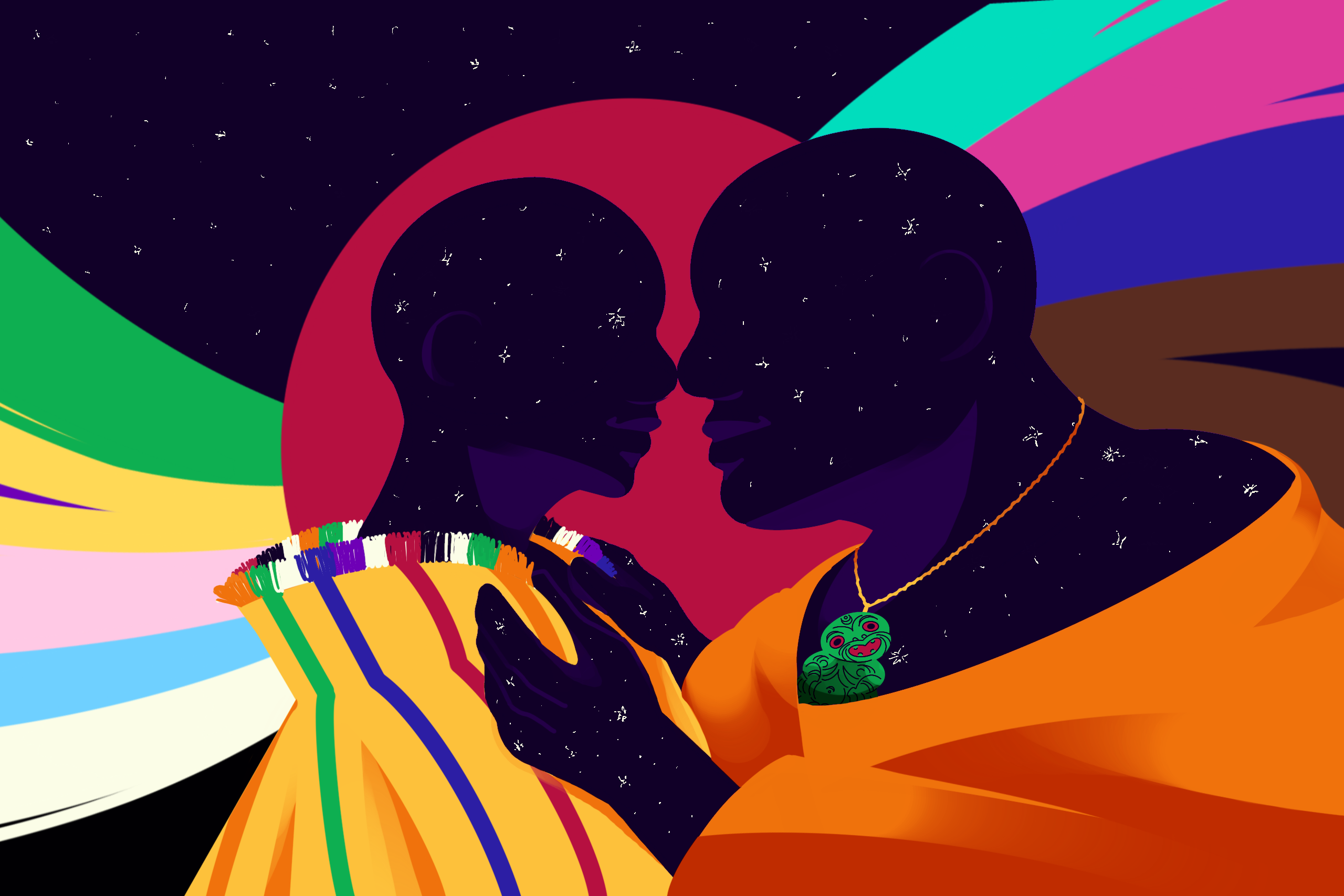The biography of me is a convoluted one. I’m sure that’s the case for most people. However, as I look back on my life in trying to determine exactly what my—our—mokopuna might say about me, their ancestor, I worry about what they will think. If they will think of me at all. I worry about a lot of things, including this essay.
Sorry.
Maybe I should start from the beginning.
In short, my journey started in America, where my mum travelled to from Aotearoa in her early twenties. There, she met my dad, a man from Memphis, Tennessee, which led to my birth.
As I grew, Mum imparted bites of our Māori heritage through everyday language. The sweet potato we brought home from the supermarket was identified as kūmara in our pantry. Overindulgence in sugar and fast food came with warnings of getting a sore puku. In my mind, this never translated as being Māori. My thoughts were that Mum was from a country called New Zealand and that was simply how ‘Kiwis’—the people of New Zealand—talked. It wasn’t until much later, at seventeen, when I was coming out more and more to myself, friends and family as queer and transgender that I also came to face my own indigeneity.
In 2014, Te Papa Tongarewa contacted members of my family and extended whānau (who I wouldn’t meet until several years later) to inform us that a taonga in their collection belonged to us, as it was crafted by one of our tīpuna. One of my ancestors. It was at this point that I realised that there is more to me than just being American.
I was—
I am—
Māori.
This is a part of myself that I struggle to identify with. Maybe that sounds strange. I haven’t talked about this at length with many people, so I don’t know if my hesitance to describe myself as Māori is to be expected or if I’m just worrying too much, again. Due to my strongly Pākehā/American upbringing and a (misguided) view of ‘blood quantum’ in relation to Native Americans, I am wary of viewing myself or identifying as anything more than white or Caucasian. Growing up in the USA, I learned to view people claiming Native or Indigenous heritage without tangible connections as something like a social faux pas. So, even though I do have in/tangible connections to te ao Māori, I keep my distance to avoid being perceived as ‘fake’ or stepping onto a culture in which I don’t belong. At the same time, I worry that this hesitancy will be interpreted as “I can’t/don’t want to be Māori.” Of course, that’s not true, and it’s not a message that I want to perpetuate. It’s a confusing cultural limbo that I find myself in.
My skin illuminates like the beacons of Gondor in sunlight and I am always hyperaware of how my tongue seems to work against me as I attempt to speak the reo I was disconnected from for so long. My voice carries a subtle Tennessee twang—one that my dad so often ran into trouble with. Something as simple as trying to order food became an issue when people just couldn’t decipher his accent. Luckily, the flatter tones I picked up from being raised in the Pacific Northwest allowed me to translate for him. How ironic it feels now, looking back on that experience, as I’m trying to learn the language of my foremother, Te Rina, whose weaving lives among the vast collections of taonga stored at Te Papa.
In a lot of ways, this feeling of infancy—of being in a state where I must observe, listen and learn about myself, the world and my place in it—is much like my experience of coming out and into my identity as a queer person. The feeling was always there. I knew I wasn’t ‘normal’. I didn’t fit inside the box I was assigned upon entering the world, late as that was.
I’ve been a procrastinator since the womb.
I knew that I was missing a part of myself. I just didn’t have the words or knowledge to figure out what or, rather, who I am. Being born and raised in a small, obscure and highly conservative town wasn’t the best set-up to learning about queer culture. I didn’t come across the words ‘transgender’ and ‘nonbinary’ until I was sixteen years old. Now, I can’t think of my life without them. While labels can be restrictive, the ones we use to define ourselves and relate to others are freeing. Without these identifiers, I wouldn’t have the words to convey myself, to be fully seen, heard, and understood by my family, friends, peers and community.
Knowledge is a powerful gift, and my hope as a future ancestor is that our mokopuna will not only have access to our knowledge but will also have the fire and opportunity to build on it, just as we have done with the knowledge our forebears passed onto us. We have not forgotten them, their victories and sacrifices, their joys and sorrows. I pray that the future generation will have the ability and want to keep our memories alive too. More than that, I pray they do not forget their own value.
To you, my mokopuna:
Please remember us, our highs and lows, our smiles and tears, our dreams and hopes. Take pride in yourself and our culture—your culture. And know this:
You are whānau.
You belong.



